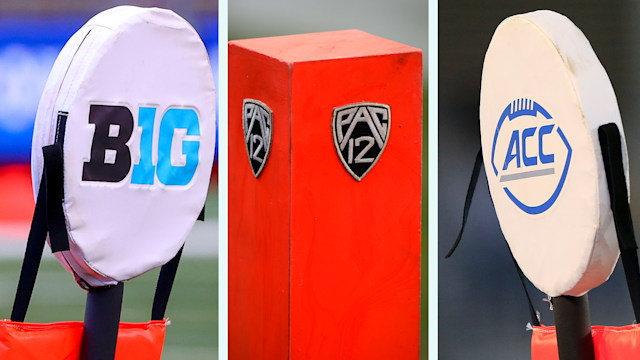Earlier this week, news broke of a new “alliance” in college athletics. The Big 10, ACC, and Pac-12 formally announced their allegiance with one another and declared their focus on the best overall interests of college athletics.
Just a month ago, Texas and Oklahoma announced they are departing from the Big 12 to join the SEC, effective in 2025. The SEC has already been a powerhouse conference in college athletics, particularly in football. The addition of the two storied college programs brings the total membership count of the SEC to 16.
While the new three-conference alliance claims their formation is not a reaction to the SEC inching closer to becoming a “super conference,” it’s difficult to count that out as a contributing factor. The alliance asserts it will focus on NCAA governance, student-athlete welfare, and perpetuating the current collegiate model. In addition, an effort will be directed toward scheduling new inter-conference games in football and men’s and women’s basketball.
There were no considerations of realignment between the three conferences in the discussions leading to the formal alliance. However, the possibility was not ruled out and remains available in the future because no contract or signed documents were created in forming the coalition. It was effectively a handshake agreement to operate with collaboration.
The lack of details in writing has drawn negative attention from the attorneys from the Alston v. NCAA Supreme Court case. The Alston class members sent a warning letter to the newly formed alliance regarding potential collaboration with future athlete compensation.
“Reports have indicated that one of the topics on which this ‘alliance’ will ‘collaborate’ is ‘the future of athlete compensation,” the letter stated. “We write to remind your clients of their obligations pursuant to the permanent injunction in the Grant-in-Aid Cap litigation. The injunction prohibits NCAA member schools or conferences from ‘agreeing to fix or limit compensation or benefits related to education that may be made available from conferences or schools…'”
The letter continued by stating there would be no hesitation to seek sanctions should the alliance conferences or schools violate the regulations set forth by the mentioned injunction.
It seems bizarre that a deal this momentous wouldn’t involve parties conveying the details of the arrangement on paper. The verbal agreement looks even less ideal now that potential legal repercussions have entered the picture. It appears the conference commissioners were satisfied with an old-fashioned handshake and taking the value of another man’s word.
Bruce Feldman reported asking ACC commissioner Jim Phillips about not having a contract with Phillips replying, “It’s about trust. We’ve looked each other in the eye and made an agreement…If (a signed contract) is what it takes to get something considerable done, then we’ve lost our way. Big Ten commissioner Kevin Warren said, “If you have to go back and look at a contract that you signed, then you probably entered a deal with the wrong parties.”
The trust the conference commissioners have with each other is admirable. Still, having their intentions in writing may be less about the implications of them dealing with each other and within the alliance and more about how their decisions will affect those uninvolved with the deal. The purpose behind the alliance is likely authentic in its pursuit of enhancing the lives of its student-athletes. However, the SEC may see it also as a direct action to better compete with their dominance. Pure intentions may not ease the rest of the college athletics community unless put in formal writing. The alliance knows its limits, and only time will tell how far they try to push them.
For more visit Talking Points Sports.



















